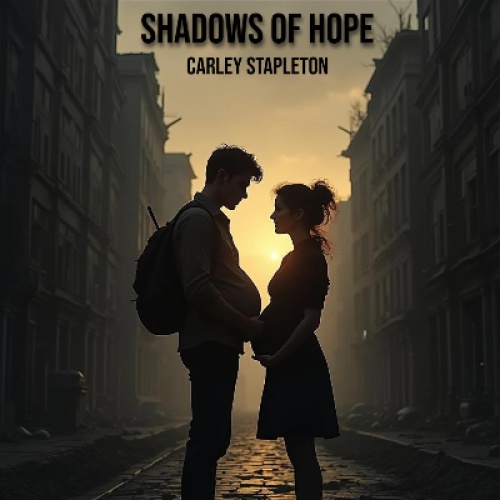The cold settled deep into the bones of the city, and with it came a suffocating sense of dread. The Gestapo's grip tightened relentlessly. Raids became more frequent, more violent. Friends vanished overnight, their fates whispered in hushed tones. The Jewish quarter, once a place of community and resilience, now felt like a cage closing shut.
Klaus and Ana lived in constant fear, their days marked by the careful avoidance of patrols and the ever-present threat of betrayal. Klaus's resistance work had become more dangerous than ever. He moved like a shadow, slipping through the city's cracks to deliver food, medicine, and hope to those trapped in ghettos and hiding places.
Ana's pregnancy was now unmistakable. She wore layers of loose clothing, but the fear of discovery gnawed at her every moment. The baby's kicks were a bittersweet reminder of life amid death.
One evening, Klaus left for a mission and did not return. Hours stretched into a night filled with silence and dread. Ana's heart pounded as she waited, listening for the familiar sound of his footsteps.
The next morning, a whispered rumor reached her ears: Klaus had been arrested during a Gestapo raid.
The world tilted beneath her feet.
With Klaus gone, Ana became the fragile pillar for their small circle of friends and neighbors. She relied on Miriam and others to bring news and supplies. Every day was a battle to keep hope alive, to protect her unborn child, and to survive.
She wrote in her journal to keep her fears at bay, to remind herself of the light still flickering in the darkness.
Late into the night, Ana lit a single candle and wrote by its trembling flame, trembling herself.
"December 10, 1941
Klaus is gone. The silence in our home is deafening. I clutch his scarf, the scent faint but comforting. Fear threatens to consume me, but I must be strong. For David, for myself, for those who still believe in tomorrow. I will not let despair win. I will fight in the shadows, even if I stand alone."
Miriam helped Ana find a safe house, a small room hidden behind a bakery where Ana could rest and hide her pregnancy. The space was cramped and cold, but it was a sanctuary from the Gestapo's reach.
Ana spent her days tending to neighbors, organizing food deliveries, and writing letters to Klaus, hoping they would reach him somehow.
Each day without Klaus was a test of endurance. Ana's thoughts swirled with fear and hope, memories of their love and dreams of a future she was determined to protect.
She clung to the belief that Klaus's spirit was unbroken, that their fight was not over.
One evening, a coded message arrived through the resistance network: Klaus was alive. Though imprisoned, he remained strong, refusing to betray his comrades.
The news was a balm to Ana's weary soul.
As winter deepened, Klaus and Ana's love and courage became a beacon in the darkness. Though separated by walls and fear, their hearts remained intertwined, bound by hope and the promise of a future worth fighting for.





